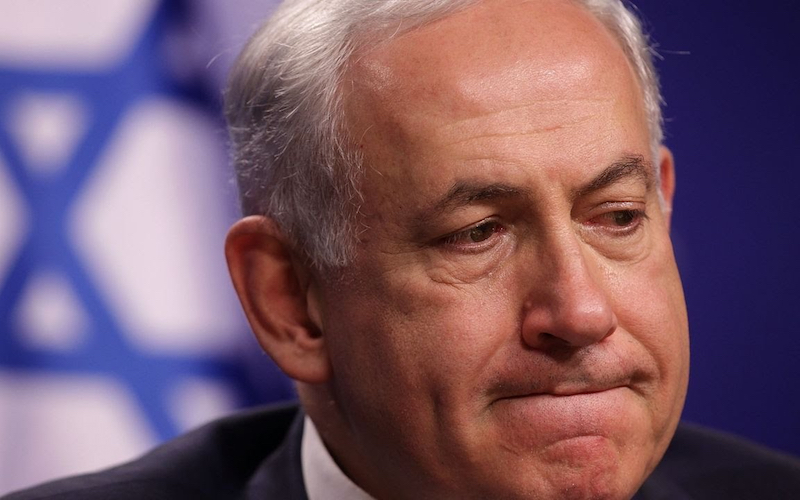
The Amorphous Israeli-Palestinian Two-State Solution
The frozen Israeli-Palestinian conflict has raged on almost since the day Israel achieved independence in 1948. Despite the Oslo Accords, which were intended to bring peace and political stability to both sides, the degraded situation heightens the level of destabilization in the Middle East and North African region. Beyond the Israelis and the Palestinians, the biggest impediment to the peace process is now the Trump administration.
Israel, despite violating international law, continues to receive ongoing and unprecedented diplomatic, military and financial support from the U.S. Congress. The Trump administration’s position has incrementally distanced U.S. foreign policy on this issue from that of the MENA countries and the European Union (EU) where there is an unequivocal push for a two-state solution.
Without decisive action by the entire international community, including the withdrawal of U.S. financial aid to both sides and military aid to Israel, as well as the broader imposition of economic sanctions, there will never be a détente, let alone a two-state solution.
Israel’s Hardline Stance
In June 2009 Israeli Prime Minister Netanyahu delivered a landmark speech, reflecting a trend that had been growing ever since the Oslo Accords were signed. Mr. Netanyahu articulated untenable conditions for the ‘two-state solution’ advocated by his predecessors which were consistent with the Oslo Accords and were no longer subject to negotiation. Mr. Netanyahu stated that Israel endorsed Palestine existing as a neighboring but, demilitarized state.
Under his ‘proposal,’ freedom of movement would remain constricted, with displaced Palestinians forever barred from returning to their ancestral homelands. Ignoring the naturally occurring Palestinian population growth, an expansion of the limited lands beyond that which they had been relegated to since 1967 would not be considered. Jerusalem, which under the original United Nations plan, was to be internationally governed, would remain under Israel’s sole governance. Most significantly, the Palestinians had to formally recognize Israel as the ‘Jewish’ national state; a proverbial slap in the face.
Paradoxically, eight years later, in 2017, Mr. Netanyahu’s position has only hardened as he has stated that Israel will negotiate with the Palestinians only if they come to the table with no preconditions.
Palestinian’s de facto, octogenarian President Mahmoud Abbas, who was last elected in 2006 and whose power is limited to the West Bank, where his party, Fatah is based, is being pressured by the European Union and the Arab quartet – Egypt, Jordan, Saudi Arabia, and the UAE – to reconcile competing Palestinian factions and to name a successor. The other faction is Hamas which is the internationally unrecognized Gaza Strip governing body. Listed as a terrorist organization by the EU and the U.S., Hamas is issuing a new charter reflecting a sharp ideological shift.
The Netanyahu’s Stronghold
Israel has a parliamentary government – the 120 member Knesset – which elects a prime minister as its chief executive, making the office holder the country’s most powerful political. The presidency is an honorific position. Parliamentary elections are scheduled every four years, but unstable coalitions or a no-confidence vote by the Knesset can dissolve a government earlier. This has been the modus operandi with elections having been held on the average every 2.8 years.
Mr. Netanyahu, a member of the right-wing party, the Likud, is currently Israel’s three-time Prime Minister. The Likud holds 30 parliamentary seats. In 2016 Mr. Netanyahu’s approval ratings plummeted to 33 percent signaling that Israel may be ready for change. In April Mr. Netanyahu had a falling out with Finance Minister Moshe Kahlon, a key coalition partner, which appears to be resolved. Mr. Netanyahu now faces possible criminal charges in two cases. By calling for an early election, Mr. Netanyahu may not only avoid criminal charges, as levelling charges during an election campaign could be seen as election interference, but it would also allow him to maintain his grip on power and continue hindering the peace process.
Until recently, the strongest opposition party has been the disorganized Zionist or Labor party, which holds 19 Knesset seats. The Labor Party is headed by Isaac Herzog, who immediately after being elected party leader on November 22, 2013, met with Mr. Abbas pledging his support for the two-state solution. Mr. Herzog’s view that, “I believe that the internal reality of this [the Likud] coalition is in the midst of a crisis. The tensions are enormous and there is a basic lack of confidence in the Prime Minister. I believe that in the coming year we will go to elections,” are unsupported by recent polls and the sheer tenacity of Mr. Netanyahu. Mr. Herzog seems oblivious to the fact that, like Russian President Vladimir Putin, Mr. Netanyahu is an ultimate political survivor.
Biased Polling
An April poll showed that if elections were held today Mr. Netanyahu’s party would continue controlling the Knesset, that the previously third-ranking Yair Lapid’s centrist Yest Atid party would move into second place, and that Mr. Herzog’s Zionist Union party would be ranked third.
“According to the survey, if elections were to be held in the near future, some 70% of Jews would want either a right-wing or a center-right government to take office, while 57% of Arab Israelis would prefer to see a center-left or left-wing government. Almost 80% of the respondents as a whole thought that either a center-right or right-wing government had a greater chance of taking office if elections were held soon,” according to the Midgam Research Institute poll. The numbers reflect a lack of public support for parties favoring a two-state solution.
The longevity of the conflict has sadly led to a poor internal perception of a peaceful solution as was made manifest in an April 2017 poll in which 51% of Israeli Jews, 48% of Israeli Arabs, and 68% of Palestinians agreed with the statement that, “Nothing can be done that’s good for both sides; whatever is good for one side is bad for the other side.”
These results are entirely inconsistent with another recent poll, commissioned by J Street, a U.S. firm which advocates on behalf of the Palestinians and was carried out by Smith Consulting, of a representative sample of 500 Jewish and Arabic Israelis. This poll allegedly found that 68% of Israelis support a two-state solution. Even more surprising was the result that 58% of Israelis said they would vote for a referendum for a permanent solution based on the following principles: returning to Israel’s 1967 borders with some land swaps, declaring Jerusalem the shared capital of both the Jewish and Palestinian states, and addressing the grievances of Palestinian refugees mainly through compensation payments.
New Settlements
Recently Mr. Netanyahu was harshly criticized by the U.N., the UN Security Council, and the European Union for his push to build the first new settlements in over two decades in Palestinian territories occupied since 1967, including in East Jerusalem. The UN Security Council responded on December 23, 2016 by passing Resolution 2334 addressing Israeli settlements in “Palestinian territories occupied since 1967, including East Jerusalem.” The resolution states that Israel’s settlement activity constitutes a “flagrant violation” of international law and has “no legal validity.” It demanded that Israel stop such activity and fulfill its obligations as an occupying power under the Fourth Geneva Convention. It was the first Israeli UN Security Council resolution in recent time not to be vetoed by the United States, which abstained.
